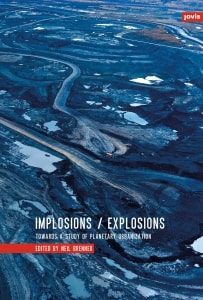Planetary Urbanization
Theory project
Christian Schmid, Professor of sociology, faculty of architecture, ETH Zurich
Neil Brenner, Professor of urban theory, Harvard Graduate School of Design (GSD)
Recent Publication Links:
The Urban Age in Question (2014)
Towards a New Epistemology of the Urban (2015)
Journeys Through Planetary Urbanization (2018)
Already four decades ago, Henri Lefebvre put forward the radical hypothesis of the complete urbanization of society, demanding a radical shift in analysis from urban form to the urbanization process. Today, the urban represents an increasingly worldwide condition in which political-economic relations are enmeshed. This situation of planetary urbanization means, paradoxically, that even spaces that lie well beyond the traditional city cores and suburban peripheries—from transoceanic shipping lanes, transcontinental highway and railway networks and worldwide communications infrastructures to alpine and coastal tourist enclaves, “nature” parks, offshore financial centers, agro-industrial catchment zones and erstwhile “natural” spaces such as the world’s oceans, deserts, jungles, mountain ranges, tundra and atmosphere—have become integral parts of the worldwide urban fabric. While the process of agglomeration remains essential to the production of this new worldwide topography, political-economic spaces can no longer be treated as if they were composed of discrete, distinct and universal “types” of settlement. In short, in an epoch in which the idea of the “non-urban” appears increasingly to be an ideological projection derived from a long dissolved, preindustrial geo-historical formation, our image of the “urban” likewise needs to be fundamentally reinvented. The project aims at developing a new analytical framework for the analysis of contemporary urbanization processes.
